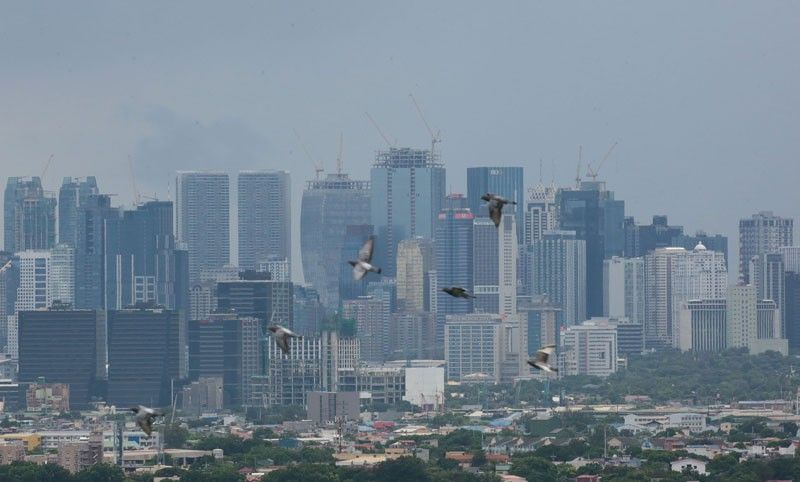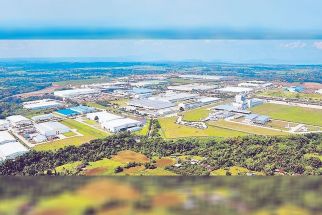Government downgrades economic forecasts for 2020

MANILA, Philippines — Economic managers further revised their forecasts downward this year as the prolonged community quarantine measures to contain the COVID-19 pandemic continue to take a heavy toll on economic performance.
In a press briefing, the inter-agency Development Budget Coordination Committee (DBCC) said it now expects the economy to contract by 8.5 to 9.5 percent this year, worse than the previous estimate in July of between 4.5 to 6.6 percent.
This would also be the sharpest decline in gross domestic product (GDP) since 1984, when the economy contracted by seven percent.
The DBCC attributed the revision to the prolonged community quarantines in various regions in the country.
But despite the lower projection, the DBCC said further relaxation of restrictions, made possible by improvements in the health care system, would keep the economy on track toward recovery.
“Thus, GDP growth is projected to bounce back to reach 6.5 to 7.5 percent in 2021 and eight to 10 percent in 2022,” the DBCC said.
The Philippine economy remained in recession in the third quarter of the year with a GDP contraction of 11.5 percent. This was, however, an improvement from the 16.9 percent decline in the previous quarter.
Economic managers said they expect further improvements in the fourth quarter as the government proactively manages health risks posed by the pandemic.
Meanwhile, the DBCC has also revised its inflation forecast this year, which is now ranging from 2.4 to 2.6 percent. Assumptions for the price of Dubai crude oil were also revised to $40 to $42 per barrel from the previous estimate of $35 to $45 per barrel.
The foreign exchange rate assumption for 2020 was also adjusted to a lower range of P48 to 50 against $1 from the previous estimate of 50 to 52.
In line with recent trends in global trade, the growth assumption for goods exports is maintained at -16 percent for 2020, while growth of goods imports for 2020 was further adjusted to -20 percent from -18 percent.
The DBCC said services exports and imports in 2020 are expected to contract further by 21.4 percent and 19 percent, respectively.
The DBCC also increased the government’s revenue program to P2.85 trillion from P2.52 trillion due to the above-target performance of the Bureau of Internal Revenue (BIR) and the Bureau of Customs (BOC).
Revenue projections for 2021 and 2022 have also been hiked to P2.88 trillion and P3.31 trillion, respectively.
“The adjustments already factor in the expected impact from the implementation of the CREATE (Corporate Recovery and and Tax Incentives for Enterprises) bill, as passed by the Senate,” the DBCC said.
On the other hand, the 2020 expenditure program was cut to P4.23 trillion (23.3 percent of GDP) from the previous target of P4.34 trillion. Nevertheless, this is still 11.5 percent higher than the 2019 figure.
The DBCC said the disbursement program is seen to increase to P4.66 trillion and P4.95 trillion in 2022.
Given the increased revenue target and lower spending estimate, the government’s deficit program for 2020 was narrowed down to 7.6 percent of GDP from the previous ceiling of 9.6 percent.
Next year, the deficit is seen to widen to 8.9 percent of GDP, higher than the previous estimate of 8.5 percent, before narrowing down to 7.3 percent in 2022.
Consistent with the macroeconomic assumptions and fiscal targets, the
DBCC said the proposed 2020 budget is now pegged at P5.024 trillion, 11.5 percent higher than the 2021 budget of P4.5 trillion.
“The proposed 2022 national budget will continue to prioritize funding for health-related responses and measures that will help accelerate economic growth,” Avisado said.
Given “tight” fiscal conditions next year, Finance Secretary Carlos Dominguez said, “we cannot say that we are supporting another Bayanihan 3 bill.”
“However, we are planning to spend what is not spent this year in both the budget and the Bayanihan 2. That is an additional P213 billion if I’m not mistaken,” he added.
Dominguez said the extension of these budget items, together with the passage of the 2021 budget could serve as a stimulus for the economy next year.
- Latest
- Trending






























